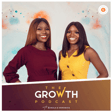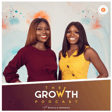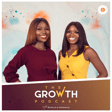
The World Bank Treasury Summer Internship Episode with Funmilayo & Precious
In this episode, Veronica sits with Funmilayo Odusanwo and Precious Ozegbe, who are interns at World Bank Treasury this summer. Listen to them share their experiences and useful tips that might help you secure the bag at World Bank.
------------------------------------------------------------------
Follow Funmi on LinkedIn
Follow Precious on LinkedIn
------------------------------------------------------------------
Remember to,
Send us your career dilemmas here.
------------------------------------------------------------------
Check out the new website layout - Growdiance
Join our mailing list to stay up to date on everything Growdiance - Join us
------------------------------------------------------------------
Follow Bukola on LinkedIn, Twitter and Instagram
Follow Veronica on LinkedIn, Twitter and Instagram
Follow Growdiance on LinkedIn, Twitter and Instagram
------------------------------------------------------------------
Remember to leave us a 5-star ⭐️ rating.


